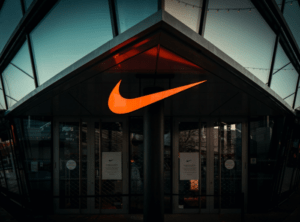In today’s crowded marketplace, where countless companies vie for your client’s attention, standing out is necessary for business survival. Expert Contributor Gabi Loh explains why branding is important, and how to do it right.
Every business seems to offer similar products or services, with generic names and forgettable logos. But what separates the fleeting brands from the enduring ones?
The answer lies in a powerful tool often misunderstood: branding.
Branding is more than just a fancy logo or expensive website. It’s the very essence of your business, the story you tell and the emotional connection you forge with your audience.
Branding is the invisible handshake that builds trust, loyalty, and ultimately, success.
Why is branding crucial?
The Power of Recognition: Building a Brand Identity
Imagine walking down a crowded street. A familiar logo on a billboard catches your eye. It sparks a memory, a positive association – perhaps a childhood memory or a lingering jingle.
That’s the power of brand recognition.
A strong brand identity sets your business apart from a crowded marketplace. Think of the iconic golden arches of McDonald’s or the swoosh of Nike. These instantly recognisable symbols build trust as customers feel comfortable with a familiar brand.
Your brand identity may not be as recognizable as McDonald’s.
Focus on your brand voice and the tone you use in your communications.
Are you playful like Duolingo or sophisticated like Hermes?
A consistent voice across your platforms – website, social media and customer service – reinforces your brand identity and builds trust with your audience.
The Power of Connection: The Psychology of Self
According to prominent psychologists like Carl Rogers, William James and Sigmund Freud, we have a self-concept – the inner self based on our beliefs, values, skills and personality traits. This concept is reinforced by our social interactions, cultural influences, accomplishments and failures.
The outer self is the ideal image that is a projection of your inner self. This is now known as personal branding.
For many people, both their outer and inner selves match. For some, they turn to brands to create another story for themselves.
For example, Nike’s brand speaks directly to the inner athlete in all of us.

Nike has expressed this belief as, “If you have a body, you are an athlete.” Their marketing campaigns have always focused on the person using the brand rather than their products.
Each customer’s inspiring inner dialogue with his inner athlete (“Just do it”) is the core of the relationship between us and the Nike brand.
By aligning your brand values and messaging with the aspirations of your target audience, you create a desirable connection between your brand and your clients.
The Power of Emotions – Amplifying the Connection
According to Zaltman (2018), 95% of purchasing decisions are subconscious, which means we are less rational than we think!
Since our emotions play a significant role in driving behavior, your customers will buy into the experiences and emotions that you evoke within them.
A strong emotional connection fosters brand loyalty over time.
Patagonia is a great example. They champion environmental responsibility, and the brand resonates with people who value sustainability.
Their customers’ stories and their environmental activism are key parts of their marketing campaigns. They are creating a movement with their brand and making their customers feel that they are active participants in their movement.
They make their customers feel good about themselves, and when that happens, you earn a loyal fan base for your brand.
Nike and Patagonia are brands that make their customers feel like heroes in their life stories. They are also crystal clear on the ideal customer’s needs and aspirations.
Technology brands like Apple and OpenAI make their customers feel that they are early adopters participating in advanced technological innovation, even if these customers are not technologically savvy.
A strong emotional connection fosters brand loyalty over time. When customers feel a sense of belonging or alignment with your brand values, they become advocates.

Women shopping online
They will choose you over competitors, recommend your products to friends, and even defend your brand during negative publicity.
A premium price tag will no longer be a barrier to their purchase decision.
Does your product or service make a manager feel like a hero in his company?
Conclusion
So don’t let your brand be a face lost in the crowd. Branding is your opportunity to become a beacon, a guiding light that resonates with your ideal customer.
It’s the chance to craft a story that ignites their inner fire, a story they’ll be proud to tell—a story where they are the hero, not just a consumer.
Remember, a powerful brand isn’t just about selling products; it’s about inspiring action, igniting passion, and leaving an indelible mark on the world. The power to forge your legacy—to build something that resonates, starts right here, with your brand.
What story will yours tell?










